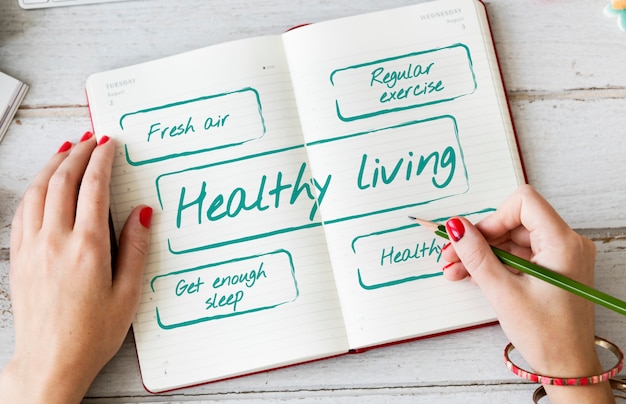
Keeping healthy isn’t that complicated. It all starts with something as simple as eating well. A balanced, nutritious diet can keep major sicknesses like heart disease and diabetes at bay, and it can also help people who are already fighting these illnesses manage them better. What “healthy eating” looks like can vary from person to person, but the ultimate goal is the same. We want to regularly eat foods and drinks packed with the nutrients our bodies need to flourish. So, how can you start on this road to healthier eating and stick to it? Let’s go over some tips from the pros.
First, let’s understand what good nutrition is. It’s the foundation of good health. Good nutrition means eating foods rich in essential vitamins and minerals, while also watching how much fat you’re taking in. Most people do well to include high-fiber foods in their diet, and just about everyone benefits from eating five daily servings of fruits and veggies.
Simply put, good nutrition also means watching how much you eat to make sure you’re not taking more calories than your body needs each day.
The key to good health is a balanced diet and regular exercise. But be careful to not fall for diets that promise quick fixes. They are usually hard to keep up and could even be harmful. Instead, think about a diet that you can stick to for the long run.
Could it be time to change your eating habits? If you’re nodding “yes” to any of these questions, it might be best to talk to a healthcare professional about it:
1. Has your doctor warned you about a condition or risk such as high blood pressure or raised cholesterol levels?
2. Did your doctor suggest that better nutrition could help with your health issue?
3. Are there any diseases that run in your family, like diabetes, cancer, heart disease, or osteoporosis?
4. Have you gained weight over the years?
5. Are you unsure about which foods to eat or if you need to take dietary supplements?
6. Do you think speaking to a dietitian could be helpful?
Switching to healthier eating habits can be tricky. But taking small steps makes it possible. In particular, if you have conditions affected by what you eat, like kidney disease or lactose intolerance, these changes become even more important.
Here’s how you can give your health a boost:
1. Look over your current diet: Are you consistently eating 4-5 servings of fruits and veggies every day? How’s your calcium intake? Do you eat whole grains and high-fiber foods? If you’re doing well in these areas, keep going! If not, try including more of these foods in your meals.
2. Keep track of what you eat and drink every day: Keeping a food diary can help you see if there’s anything in your diet you need to change.
3. Consider getting advice from a dietitian: They can give you specific dietary advice, especially if you have particular health concerns.
Cutting down on unhealthy fats is a widely accepted step towards healthier eating. Try these changes:
1. Bake, grill, or broil your meat instead of frying it. Take off the skin from chicken or turkey before you cook them. And aim to eat fish at least once a week.
2. Try to eat less added fats, like butter on bread or high-calorie salad dressings. Go for low-fat or fat-free alternatives.
3. Eat more fruits and vegetables.
4. Read nutrition labels on food products before buying them and ask your healthcare provider or dietitian for help if you have trouble understanding them.
5. When eating out, watch out for hidden fats and oversized portions.
One basic but crucial part of good health is adequate hydration. Aim for zero- or low-calorie drinks like water or tea. Too much sugar and calories come from drinks like fruit juices, soda, and sweetened iced tea.
Remember these key points:
1. There’s no magic solution to better nutrition. A diverse diet of whole foods gives the most benefits.
2. Be wary of diet programs or products that seem too good to be true. Advertisement endorsements are often paid, and side effects, complications, or the probability of gaining back lost weight are seldom disclosed.
3. Lastly, set attainable dietary goals. Prioritize your health. It’s a journey well worth taking.









